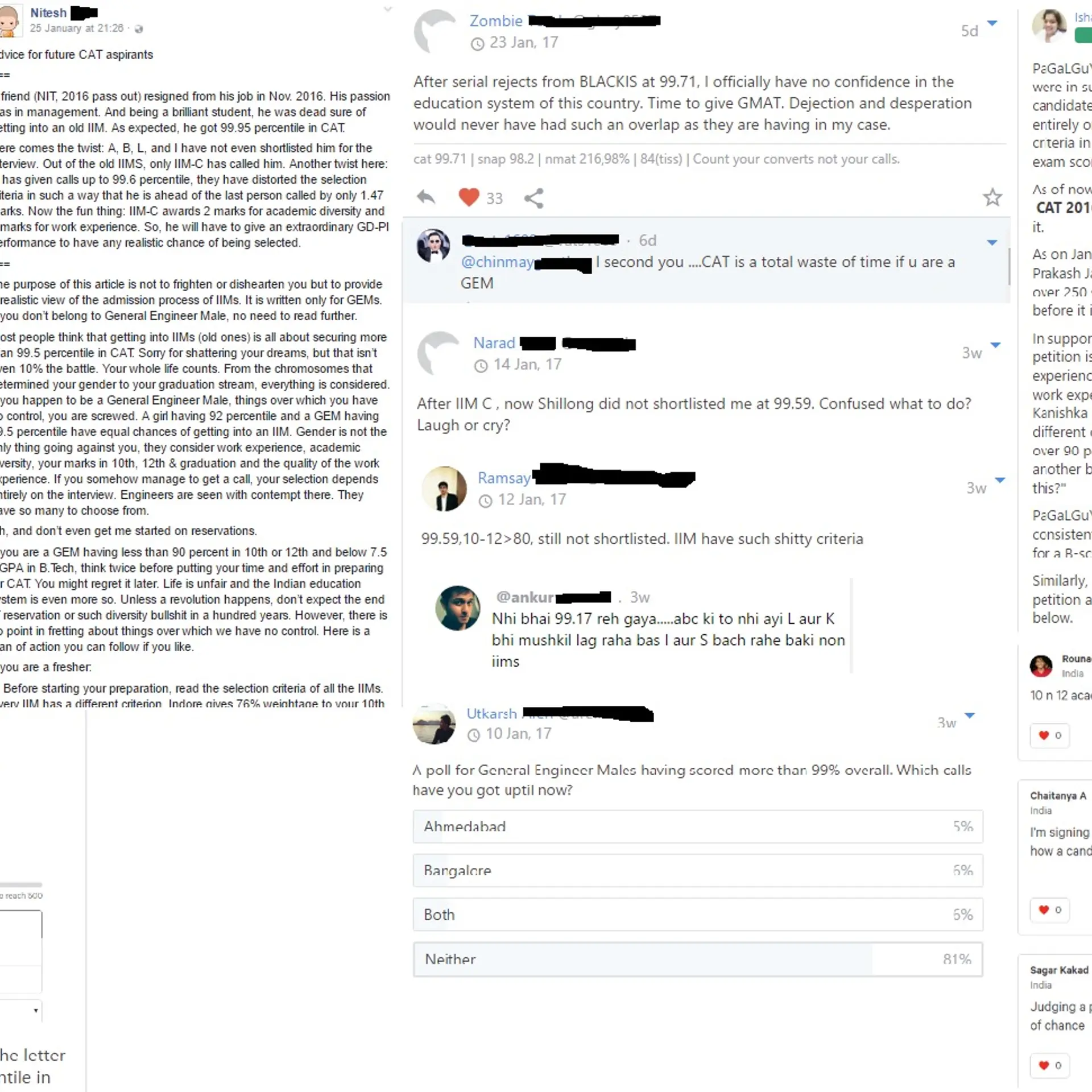

How Understanding the Voice of Suppliers will take your business to the next level?
Suppliers are your most crucial business partners. In this era of collaborations, how suppliers can significantly contribute to provide you with a competitive edge? Please read through this article to have a different perspective on Supplier Relationship.
Suppliers are your most crucial business partners.
In this era of collaborations, how suppliers can significantly contribute to provide you with a competitive edge? Please read through this article to have a different perspective on Supplier Relationship.
Be Customer of Choice of your Suppliers
"What is the foundation of any ‘Relationship’?"
Trust is the base on which relationships are built, sustained or in absence jeopardized. Think about any relationship – personal or professional, you tend to measure its strength only based on the mutual trust between the two parties involved.
There are Three Levels of Trust
There are three different levels of trust. With the time passage, one progresses through these levels.
1. Rule-Based Trust: It is the basic level of trust. There are pre-defined rules based on which this trust is observed. For e.g in case of suppliers the contract conditions which are required to be mutually honoured by both buyers and suppliers.
2. Knowledge-Based Trust: The next level of trust arrives with the experience. Once, a person (or organization) gets enough interactions and experience with another person (or organization), they start displaying trust towards each other. It usually develops with the day to day interactions. In case of suppliers this trust is created based on the experience what a supplier has of you as a buyer over time that means your consistency in taking care of the interest of the suppliers will create this trust.
3. Identity-Based Trust: Last, and the ultimate level of trust is when the other party (in this case your supplier) is convinced based on your approach that you don’t have "Me First" attitude & you always have ears to listen to your suppliers to opt for a fair decision in the mutual interest.
“The Best Buyer-Supplier Relationship is the outcome of all the 3 areas of TRUST”
How this translates broadly into DOs & DON’Ts in context of your Suppliers?
Here are a few DOs and DONT'S which we all shall keep in mind while dealing with the suppliers.
DOs
- Be clear about your requirements.
- Fairness on your evaluation of suppliers’ offerings.
- Create the Contract on what is mutually agreed upon.
- Honouring agreed conditions of the contract.
- Take long term view of the relationship.
- Understand your suppliers’ challenges.
- Motivate your suppliers for innovations.
DON'Ts
- Don’t exploit your suppliers because of higher leverage as a buyer.
- Don’t look only at the cost.
- Don’t fail on your contractual commitment.
- Don’t run away when you face any crisis.
The danger here is that if your suppliers feel devalued, cheated or even threatened, then their natural emotional responses could be detrimental to the business relationship leading to…
- Higher cost as your suppliers are not loyal to you & would be opportunist.
- Lower Service standards as you will never be a preferential customers leading to compromise in various service parameters.
- Slow Pace of Innovations due to no motivation for the suppliers to go beyond specific deliverables.
- Higher Risk Pertaining to the Suppliers as you can quickly lose them once they have better alternative of you.
Considering the prohibitive implications of poor supplier relations as mentioned above...

Typical issues Faced by the Suppliers
In order to understand the supplier, it is also essential to understand their issues. Below enlisted are a few key pain-points which a supplier generally faces:
1. Delayed Payments: This is one of the most common & irritating issue for the suppliers when they are not paid on time or their payments are withheld without them having the clarity of reasons. This could be due to financial stress faced by the company or complex internal processes & policies.
Solution: Ensure that you transparently share with your suppliers if there are any challenges which can lead to delay in payment and proactively work with the suppliers to overcome any internal procedural delays
2. Misunderstanding the Scope of Deliverables: Lack of clarity on T&C as well as scope of deliverables leads to loss of trust. This could be intended or not intended but for whatever reasons this happens it ultimately shakes the confidence of suppliers.
Solution: Be absolutely clear during the process of contract finalization about the deliverables & T&C with the suppliers and take consensus on each of the point. Ensure the contract is drafted based on all the consensus between you & your suppliers and if there is any condition which is by chance over looked & essential for the contract than seek consensus of the supplier & provide convincing explanation to the suppliers on why it is necessary to incorporate the required condition.
3. Communication Gaps: Many times suppliers are ignorant about the challenges faced by you which can lead to some unforeseen situation detrimental to his interest. Besides many times the communication gaps lead to complete loss of trust as the same are interpreted as intended miss by the buyer.
Solution: Be transparent with suppliers in all situations. Even if you have challenges, let the suppliers know so that they create confidence in you that there are no unwanted hidden surprises.
4. Emphasis on Price rather than Relationship: If you only put emphasis on price & try & capitalize every time favourable situation of your organization to squeeze your suppliers, you will lose much needed loyalty of suppliers towards your organization.
Solution: Cost is an important factor for any organization, but these costs need to be weighed on the base of absolute cost as well as accounting long term risks. You need to have logical and convincing explanation for suppliers during negotiations based on facts & need to provide desired respect to the suppliers to listen to their views and come thru mutual consensus on the cost where ever possible. In fact even if you are unable to concede to the request of the suppliers please ensure that you have explained transparently the reasons.
Gallup a Global Analytics and Advisory Firm found three key factors in becoming a Customer of Choice. viz.
- Engage your suppliers. Seek feedback and listen.
- Let your suppliers into the tent. Willingly share information.
- Be easy to do business with. Strive for clarity, simplicity and consistency.
A company that actively works to incorporate these three principles into its business practices is on its best way to becoming a customer of choice.
To determine where your organization stands, it is vital to have your scorecard from your suppliers. We shall always keep in mind that,
A business that becomes “Customer of Choice” receives unique benefits from its suppliers, which creates a vital strategic advantage.
How to be the best Customer of Suppliers?
TRUST is the underlying factor for effective Customer Relation & so is the case with Supplier Relation. There are Five core principles that form the basis of a trusting relationship:
- Reciprocity: Reciprocity ensures a fair allocation of obligations, risks and rewards. Without it, there is no win-win situation.
- Autonomy: With the principle of autonomy in place, buyers and suppliers are free to bring the best of their problem-solving skills to the table.
- Integrity means consistency in decision-making and inactions by both buyers and suppliers.
- Loyalty obliges buyers and suppliers to be loyal to the relationship.
- Equity is important to maintain harmony and trust in a relationship. It obliges buyers and suppliers to share the rewards in proportion to their contributions, resources invested and risks taken.
The world is continuously evolving and it is an era where everyone shall win. There are numerous benefits of collaborating with the suppliers. And you shall never forget the new Mantra,

Imagine an environment where your large supplier community believes in YOU.
This is the time when your suppliers will provide you the services needed by you on PRIORITY.
Now, is the time you will have your suppliers contributing with their niche skills to bring new INNOVATIONS for you.
This will give you an UNPARALLELED business edge.
Your views on this article are most welcomed.







